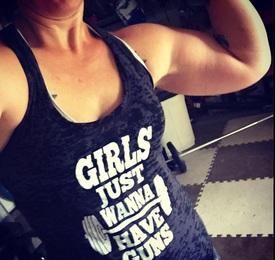We are pleased to announce that on March 4, 2025, an updated Rich Text Editor will be introduced in the MyFitnessPal Community. To learn more about the upcoming changes, please click here. We look forward to sharing this new feature with you!
Eating slower

tedrapaige
Posts: 24 Member
Hi all
Any tips on how to eat slower? Do any of you find that eating slower helps you with your weight loss?
I'm constantly hitting plateaus (no loss for 2-3 months at a time) and am trying to figure out what might be causing the problems as my surgeon has told me that if my weight loss doesn't pick up again, my sleeve might need to be reoperated into a bypass.
I really don't want another operation and the constant stalling is causing me mental health problems.
So, in short, does anyone have any tips about how to eat slower and does this help you?
Many thanks.
Any tips on how to eat slower? Do any of you find that eating slower helps you with your weight loss?
I'm constantly hitting plateaus (no loss for 2-3 months at a time) and am trying to figure out what might be causing the problems as my surgeon has told me that if my weight loss doesn't pick up again, my sleeve might need to be reoperated into a bypass.
I really don't want another operation and the constant stalling is causing me mental health problems.
So, in short, does anyone have any tips about how to eat slower and does this help you?
Many thanks.
0
Replies
-
I have the same problem with eating too quickly. I inhale!! I know this might sound dumb, but I have found that if I eat and do the newspaper crossword puzzle at the same time, I can stretch my meal to 25-30 minutes. I take a bite, put down the utensil, solve a few questions and grab another bite.
Good luck and I am looking forward to other tips!! Dee0 -
Try counting your chews. 15-25 per bite, put down the utensils, and focus of the taste of what you are eating. Be mindful and enjoy the flavors that you are sensing. Think on how to improve the flavor, or how to make it different.0
-
I have the same problem with eating too fast. I'm preop right now, but know this could be a problem in the long run. I know they say not to be distracted while you are eating, but I plate up my food (and don't do seconds, ever) then I do something like deedeetris said, and do a game or something on my phone. I work at a hospital and we get used to scarfing down food in case we get called for something important - it's a hard habit to change! Good luck!0
-
Eating fast won't do it. Eating the wrong things and too much of it will. Watch your carbs and make sure you are getting the water in. Exercise and you can't fail0
-
I have the same problem. I think being a mom and a nurse in a busy hospital, I've learned to just eat fast because I can't remember when I've actually had time to just sit and enjoy a meal with conversation. This is one of the things that worries me because I don't want to hurt myself after surgery and I'm finally able to eat solid food.0
-
I either watch a show while eating making sure it's takes me the whole show to eat. It I'm a run by eater. I'll leave my meal in the kitchen or on the table and take bits as I walk by. Do dishes, take a bite, start laundry, take a bite, make bed, take a bite.... Ect. It's the only way I can eat slow.0
-
I don't really see how fast or slow you eat makes a difference if you have portioned out your food. If you have 2 oz of food on your plate, whether you eat that 2 oz in 5 minutes or 20 minutes you are still eating the same amount of food. I think it's way more important to stick to the plan and get in your protein daily and then fill in with the non-starchy veggies. I know if I eat carbs other than fruit or veggies the scale goes up. So I have to stick to one serving of fruit a day with breakfast and then have just protein and veggies for the remaining meals to see the scale drop.0
-
I think a lot of people end up with reflux, or stuck feelings in the throat, or a heaviness in the stomach. Also going slower makes you feel (mentally) like you are eating more food.0
-
For me, learning to eat slower has definitely helped. The occasions where I foamed up and had to cough up food as I transitioned to solids disappeared when I slowed down. First, it simply allows for a more measured flow through my pouch (which seems to need a few bites to "warm up"). Second, it gives time for my brain to start to register that I'm full as I complete my measured portion. WLS is really a tool to trick our brains - so use it!0
-
Just for clarification, I'm now 9 months post op. I eat 800 calories a day (or 1000 on workout days), consisting of lean meat, low fat dairy, vegetables, and occasional complex carbohydrates (1-2x per week). I rarely eat fruit. I never drink fruit juices or sugary beverages. I drink a minimum of 2.5L of water a day. I have been having this stalling problem since being 3 months post op. My bariatric nurse and dietician have said "keep doing what you're doing", but the surgeon is now saying they may need to operate again. As you can imagine, this isn't what I had in mind when I went in for the surgery to begin with.
The reason I'm asking about eating slower is because it doesn't seem to matter what I eat - I went on holiday in the United States for two and a half weeks and ate what I felt like (burgers, gelato, the whole mess) and came back to have lost 4.5 kilos. That's more in three weeks than I'd been able to manage in three months! Since being back (now for over a month), I've lost nothing. Again. And it makes zero sense. So I'm thinking it's potentially HOW I'm eating, not WHAT I'm eating that makes a difference. I don't really know - I feel I'm a desperate woman grasping at straws. I'm open to suggestions at this point...0 -
What do you do for your workouts? Something more aerobic may better kick-start your metabolism. It could be that your trip to the states involved more walking than what you're used to. If your normal workouts involve weight training, you could be turning fat into muscle, which is good weight, but it would make what is coming off appear to be slower than you would see if running or walking.0
-
Have your thyroid levels been checked lately? A sluggish metabolism could have a lot to do with the slow weight loss.0
-
Workouts are 2-3 times per week in the gym, a mixture of HIIT cardio, weight training, kettlebell training, bodyweight exercises, and yoga. I walk a minimum of 3 miles a day as part of my commute to work. Somedays I walk the entire 10 mile round trip!
I definitely wasn't doing more moving while in the States. It was less. I was sat driving in a car, sat visiting my family, sat holding babies...just sitting. I don't know what my body's issue is with actual exercise, but it sure doesn't seem to like it.
I've been monitoring my measurements as well to see if I can note any difference from muscle mass - good weight - but alas. no joy there, either.
Thyroid has been checked over and over. There's nothing wrong with it.
The only thing I haven't tried, other than slowing down my eating, is hitting the gym every day. I don't really have time to do this (as I've doubled my commute time to be able to get the walking in) and I feel like I would burn myself out, but I guess as a last ditch effort that might be what I have to resort to.0 -
I can think of a couple of things as I stall often as well. Make sure to get all your protein and all your water (if not more). Protein isn't an issue for me, but getting all my water in is a daily challenge. I simply forget to drink. Also, make sure you really are eating the right amount of calories. I just had my 4 year checkup and was told once again I'm stalled because I'm not eating enough and putting myself into starvation mode. I didn't believe this was real, but I've now had two nutritionists tell me. So check with your surgeon's office on how many calories, protein and carbs they want you to eat daily and if you aren't, weigh and measure everything to ensure you really are eating just the amount you are supposed to. And finally, change out whatever you are doing for exercise. I was told recently that our bodies get used to what we are doing and it stops being effective. Good luck and message me if you want to talk further.
PS - if you want to eat slower, use a baby spoon. I tend to eat fast and that's what I use to slow myself down.0 -
Check your macros too my nut had me up my carbs - I was way to low on my carb intake which was slowing down my loss. At four months post op I am at 800 calories 70 grams protein, 70 grams of carbs and 30 grams of fat - her mix of macros, I know everyone is different but that was the guideline I was given. I always viewed carbs as the enemy and that was wrong...it has definitely helped me to up them, I'm not at 70 but I am not at 20 anymore either
 0
0 -
This is all very helpful, thank you!0
This discussion has been closed.











